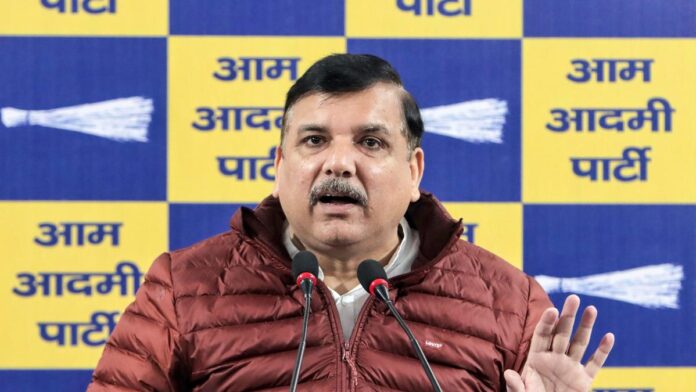January 5, 2025: The political debate surrounding the development of Delhi’s infrastructure, particularly the Delhi Metro and the Namo Bharat Corridor, continues to heat up, with significant statements from both AAP and BJP leaders. AAP MP Sanjay Singh’s remarks emphasize the shared responsibility between the Delhi government and the central government in the expansion of the metro network, highlighting that the Delhi government holds a 50% stake in these projects. His argument challenges the narrative that the central government alone deserves credit for the developments, especially in light of the ongoing political competition between the AAP and BJP.
Sanjay Singh’s statement about the 250 km expansion of the Delhi Metro in the last decade is a key point, as it underscores the Delhi government’s pivotal role in metro development. His critique of the timing of the inauguration, just before the Model Code of Conduct (MCC) for the upcoming Delhi Assembly elections, also signals that AAP views the inauguration as politically motivated. Singh’s comments reflect concerns that these inaugurations might be used to bolster the BJP’s image ahead of the elections, without acknowledging the collaborative nature of the projects.
On the other hand, Delhi Chief Minister Atishi has framed the issue as a joint effort between the Delhi government and the central government, highlighting the significance of the metro and transport sector’s development for Delhi’s future. Her positive tone suggests an effort to maintain a cooperative image while also claiming credit for the city’s progress, signaling that the Delhi government plays an important role in improving infrastructure.
The inauguration of the 13-km Sahibabad-New Ashok Nagar stretch of the Namo Bharat Corridor, which promises better regional connectivity between Delhi and Meerut, as well as the 2.8 km metro stretch in West Delhi, are major achievements in enhancing Delhi’s transportation. However, with the upcoming elections, the political battle over credit for these developments is bound to continue.
This back-and-forth between AAP and BJP reflects the broader contest over political dominance in Delhi, with both parties trying to position themselves as the key drivers of the city’s growth and modernization. The opposition’s concerns about the timing of these inaugurations as pre-election moves are likely to persist, as both sides continue to navigate the delicate balance of showcasing progress while also questioning the other’s role in the development.


